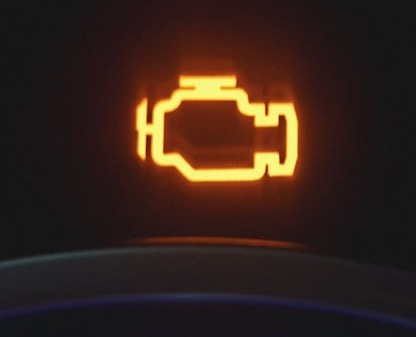How Do I Know When It's Time?
Signs that say “It’s time to see a therapist.”
When it comes to improving your mental health and overcoming tough personal challenges, not many tools get the job done like talk therapy. You’ve noticed it on your timeline, in your shows, and during daily conversations that people are now openly discussing therapy. Can you feel the stigma loosening up? Yeah, me neither. That’s because conversation doesn’t mean participation and there is more work to be done here.
Your Check Engine Light is On
We’re too busy doing life to see it holistically sometimes. When life is happening and you can’t feel where you are in it, knowing what’s wrong isn’t as easy as spotting a glowing orange light on your dashboard. Here are 10 indicators that you may need to see someone.
You may be:
Changing and don't recognize or understand this new person.
Numb or can’t seem to feel anything.
Having challenges falling or staying asleep.
Obsessing over your mistakes.
Feeling exhausted in a way that's beyond physical (for 2 weeks or more).
Your worry, fear, or mood affect your relationships and/or responsibilities.
Trying to overcome challenges, but nothing is working.
Overwhelmed by life constantly.
Experiencing big changes (Divorce, Loss, New Parent, etc).
Thinking “I want to go to sleep and not wake up tomorrow”.
When these experiences hijack your ability to take care of yourself or maintain relationships while persisting for 30 or more days, I think that may be worth looking into.
“What Brings You in Today?”
Yes, I do ask this corny and predictable question to clients because it gets straight to the point. Most people aren’t going to say “I'm trying to overcome challenges, but nothing is working” and phrase it that way. Here are the different ways I’ve heard people frame it.
“I get mad at myself later for doing things that felt good to me at the moment.”
“ I do things that aren’t good for me, but I can’t stop myself.”
“I’ve been in a down mood lately and I can’t pull myself out.”
“I want to take more time for myself, but I just end up feeling guilty.”
“I want to communicate better but every time I try, I’m not heard.”
“I’ve been trying to let it go, but it just keeps replaying in my head.”
All of these are typical reasons to come to therapy, but none of them seem particularly life destroying. Truth-be-told, you can probably apply a few of them to your life right now, and that’s the point. Each of these experiences were motivated by unhelpful programming that owned property in my clients’ blindspots. Therapy helps you bring the “why” out of the dark so that you can find healthy ways to confront difficult thoughts and emotions.

But it’s not killing me!
Being human means constantly falling into the trap of believing that the ability to handle your pain means that you don’t need to address it. I found this Instagram Post where “Willie Moore Jr. introduces the concept of unhealthy healing on the “Love You Moore” Podcast.
He tells a story about his father accidentally breaking a finger, but not getting it seen because the pain was tolerable. Without the proper support, the finger healed crookedly and didn’t move properly. The dad discovered that the pinky would need to be re-broken in order to heal correctly.
Things don’t have to be critical for you to be in therapy. Sometimes smaller aches and dull pains get worse over time without intervention. When we neglect to get the support needed for them to heal properly, we risk facing an even greater pain down the road. The fact that your engine has not yet exploded, is not a good reason to skip the maintenance on your vehicle. Sometimes keeping up with your tune-ups and oil changes makes for a more reliable vehicle over time.



I already did, got inspired to do it while writing this one. Expect to see it in December.
But how do I get my loved ones who are clearly struggling and in need of therapy to consider going? Especially with the stigma around therapy, how do I even start that conversation while minimizing the chances of offending?